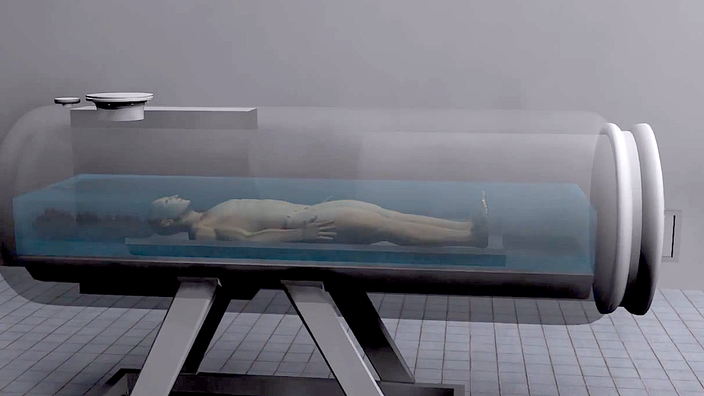The body of Nobel Peace Prize Laureate Desmond Tutu, who died at the age of 90, has been reduced to dust by aquamation, a new method of water cremation touted as an environmentally friendly alternative to conventional burial methods.
Read alsoCosts, constraints ... Choosing between burial and cremation
Like humusation, a technique of composting bodies with layers of leaves and wood, or liquid nitrogen, aquamation (or resomation) is still a confidential funeral method authorized only in certain countries.
In South Africa, the practice evolves in a certain legislative vacuum.
From its scientific name "
alkaline hydrolysis
", it consists of cremation by water rather than by fire.
The body of the deceased is placed in a large metal cylinder, and then immersed in a liquid - a mixture of water and alkaline product.
The substance is heated (around 150 ° C) and put under pressure, a process which allows rapid dissolution of the flesh inside the box.
After only a few hours, the body's tissues (fat, blood, proteins, skin, etc.) are "
completely liquefied, and only the bones remain
", explains the "funeral.info" site.
These bones are then reduced to white dust, placed in an urn and given to relatives to be buried, as Bishop Desmond Tutu was this morning, or placed in a colombarium.
A method five times less energy-consuming
From a symbolic point of view, water is considered softer than flames, and evokes the end of a life started in the liquid element.
But its defenders especially put forward the ecological gain of the method, less energy consuming than cremation by combustion and emitting less greenhouse gases.
According to UK-based company Resomation, aquamation spends five times less energy than fire.
It is also used to dispose of animal carcasses in slaughterhouses, where it is considered to be health efficient.

